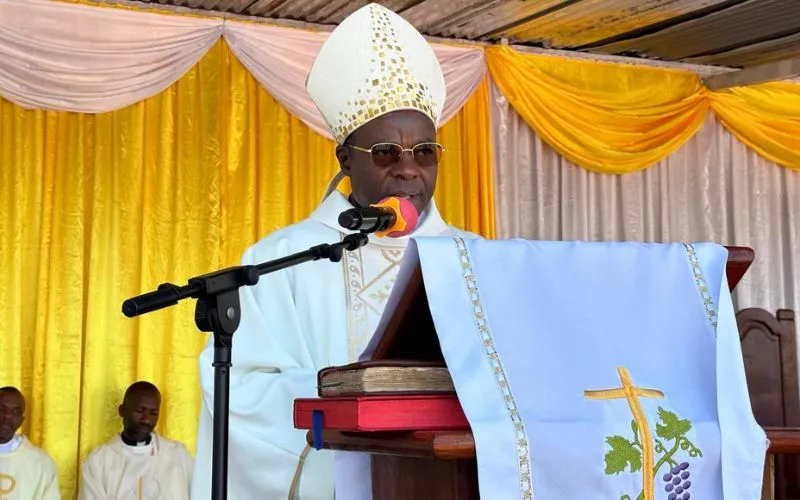According to the Bishop of Santiago, “The conclusion of this legislative process will allow the Church to consolidate its position as a partner in human and social development, providing legal security to its institutions and projects.”
During the joint press conference on the Catholic Church in Cape Verde, various aspects of pastoral life in the archipelago and the Cape Verdean diaspora were addressed, in view of the Jubilee marking 500 years since the founding of the Diocese of Santiago.
Bishop dos Santos of the Diocese of Mindelo outlined youth formation and evangelization as a top priority.
“Last year we had a national youth jubilee, which was unprecedented and very fruitful. This year, some young people will participate in the global meeting with the Pope. Young people are thirsty for meaning, seeking guidance, and the Church must be by their side in all environments: in the parish, at school, at the university,” he said.
The Catholic Church leader emphasized that “the challenge is not only to keep young people in the Church, but to offer them spiritual, emotional, and even psychological formation.”
(Story continues below)
“We live in times of many social and family tensions. We need to be a presence that welcomes, guides, and walks with young people. Youth ministry cannot be peripheral; it must be at the center of our mission,” Bishop dos Santos said.
The Catholic Bishop also underscored the importance of Priestly formation, especially for younger Clergy.
“Our Priests are dynamic and eager to grow. Ongoing formation is essential to nurture communion, spirituality, and mission. We aim to institutionalize these formative encounters, annually or every two years,” he said.
Bishop dos Santos called for urgent updates to catechism manuals and more training for Catechists and teachers of Catholic moral and religious education.
“We must work with the Ministry of Education to ensure the subject is well-implemented. This includes revising content, training teachers, and producing culturally relevant materials,” he said.
For Bishop dos Santos, catechesis is not just preparation for sacraments but an ongoing process of Christian formation.
“Catechesis is where the seed of faith is planted. If we fail here, all other pastoral efforts are compromised,” he warned.
Bishop dos Santos also emphasized the importance of collaboration between the two Dioceses, saying, “We are only two Bishops, but there are many issues we can and must tackle together—youth, catechesis, Clergy formation, and social action. Working in synergy multiplies our impact.”
“We share a common identity and similar challenges. Working together is not only more effective—it’s more evangelical,” he added.
João Vissesse is an Angolan Journalist with a passion and rich experience in Catholic Church Communication and Media Apostolate.








